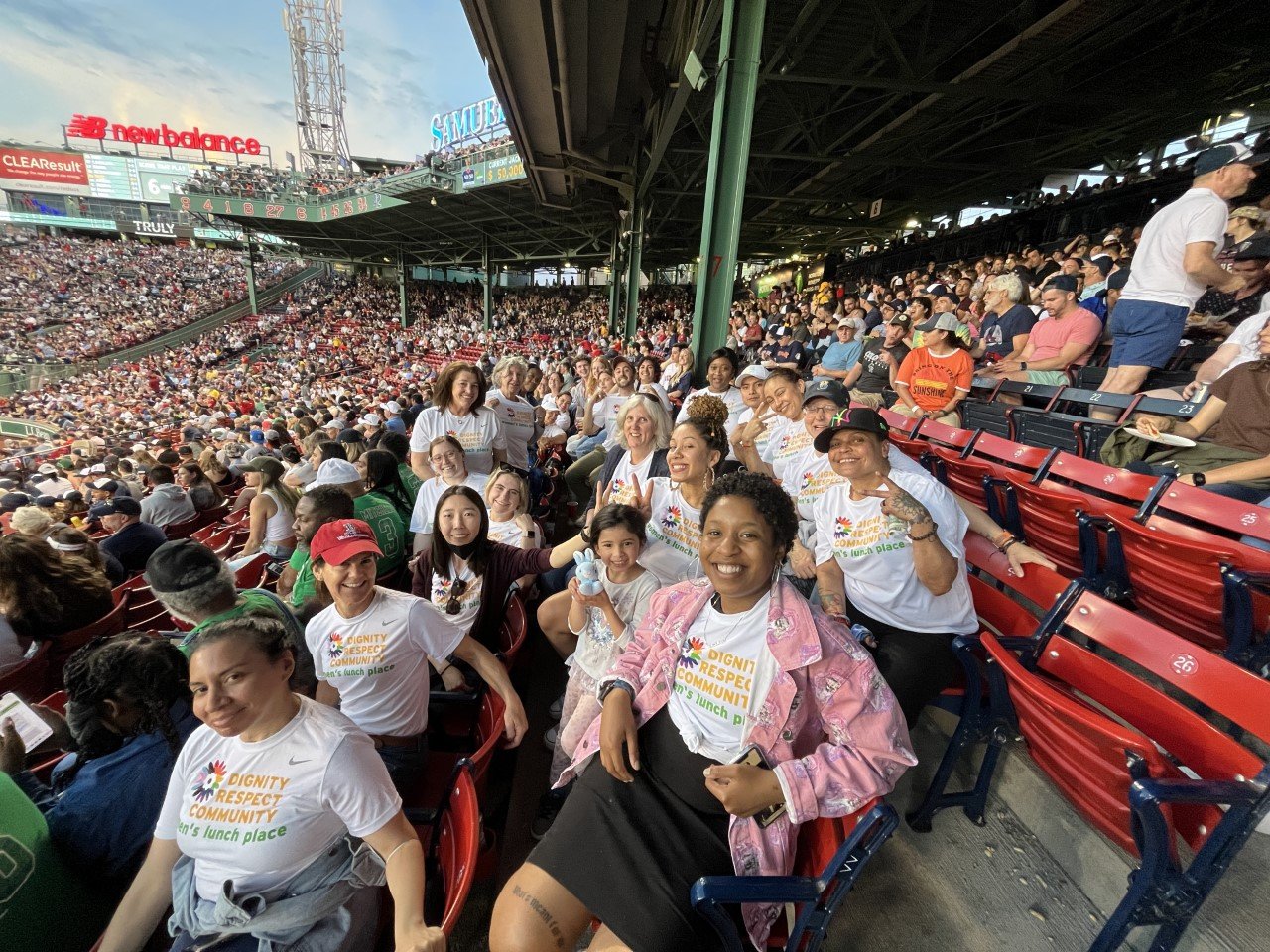Reflecting on Pride Month at Women's Lunch Place
Pictured above: WLP staff celebrating Pride Day at Fenway Park.
Within Greater Boston’s human services sector, Women’s Lunch Place is a well-known safe space for members of the LGBTQIA+ community.
We are uniquely prepared to create such a space, not just because over 20% of our staff and board members identify as LGBTQIA+, but also because we are trained and experienced in addressing the specific traumas and barriers that our queer guests are grappling with.
Our work in this regard is being noticed. Last year, The Rainbow Times ran a profile that highlighted our ability to provide care and healing to transgender women, who face disproportionate rates of sexual violence and housing discrimination.
The White House released a report in December that outlined horrific facts regarding the inequities faced by the LGBTQIA+ community, highlighting that:
One in three transgender adults has experienced homelessness
Transgender people experiencing homelessness face high rates of violence and exposure to violence, and high barriers in accessing domestic violence shelters
Transgender renters often face the dangerous experience of being outed to property owners in the process of applying for housing, and still face blatant discrimination when attempting to find safe housing
Transgender households are also uniquely impacted by the eviction crisis because of the dual effects of housing discrimination and the over-concentration of poverty among transgender and gender-diverse people
However, when it comes to the work of frontline staff at WLP, Pride Month is no different than any other.
Our Direct Care team meets guests where they are, and providing personal information is not required before accessing basic services like laundry and showers. On the floor, any discrimination against trans guests is addressed swiftly. WLP’s status as a women-only shelter greatly reduces the chances of aggression toward trans guests.
WLP Advocates assist our clients as they always do––by working together to create integrated, individualized plans for their health and wellbeing. For trans guests, this might include connecting with on-site health care providers from Boston Health Care for the Homeless Program, who can assist with consultations on gender-affirming treatment. Advocates understand that people identifying as LGBTQIA+ are more likely to have experienced outsized trauma and abuse, and they provide specialized care accordingly.
Of course, our Healthy Meals and Wellness programming are always available. Restaurant-style service, community field trips, and therapeutic expressions like yoga and tai-chi are building blocks for a dignified community that prioritizes our guests’ humanity, health, and independence.
While our services do not change, Pride Month does allow us to celebrate queer leaders, past and present, who have transformed our community for the better. It provides the opportunity to visibly promote equity and solidarity, from our communications platforms to weekly crafting projects with our guests. It also requires us to acknowledge the barriers that LGBTQIA+ people experiencing homelessness, hunger, and poverty continue to face, even in a progressive city such as Boston.
These moments inspire us to refocus, reflect on our approach, and ready ourselves to continue creating opportunities for any guest who turns to us for help.

